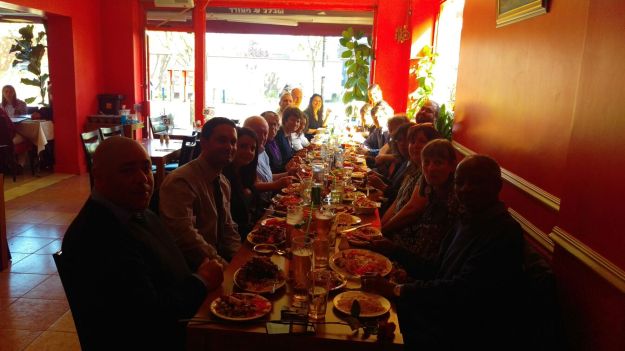
At the crematorium, at the end of the funeral: the last moments.
Right now, there is a sense of spring in the air. The trees are in blossom and the light from the sun is a little stronger, streaming in from the window next to my desk. Winter is ending, summer is beginning.
Recently, I have had a bereavement: my father, Dr Xavier Francis Carelse, passed away last month. For several months, my mother and I had been closely involved in his care, as he had chosen to pass at home. This period of great activity and intensity suddenly ended as his life drew to a close and a new experience of his ‘not living’ arose.
In treasuring and honouring the life and death of this man, there has emerged a deeper sense of staying present and ’embracing’ the moment. It arose from a perspective of perceiving each moment as precious and unique and having infinite possibilities, including opportunities for connectedness with rather than separation from others. In acknowledging this oneness, there arises a poignant sensitivity towards all beings.
The alternative is to allow the mind to become distracted and separated from the present, preoccupied with thoughts: plans for the future and memories of the past. However, this choice sustains the mind and heart in a state of mourning and distress, making the process of healing painful and slow.
It is poignant to recognise each moment as embodying opportunities for oneness with and sensitivity towards all beings. In this middle way, ending and beginning are embraced for what they are: two sides of the same coin. In this moment, life and death are one, the mind and heart are at peace and the path to healing becomes clearer.
In this experience, there is no end state. There is no goal to reach. In this time-space continuum, there is neither ending nor beginning: an unfolding of beauty and love.

A celebration with friends and family in honour of Dr Xavier Francis Carelse, my father and friend, who lived from 11 March 1933 until 26 March 2017.


